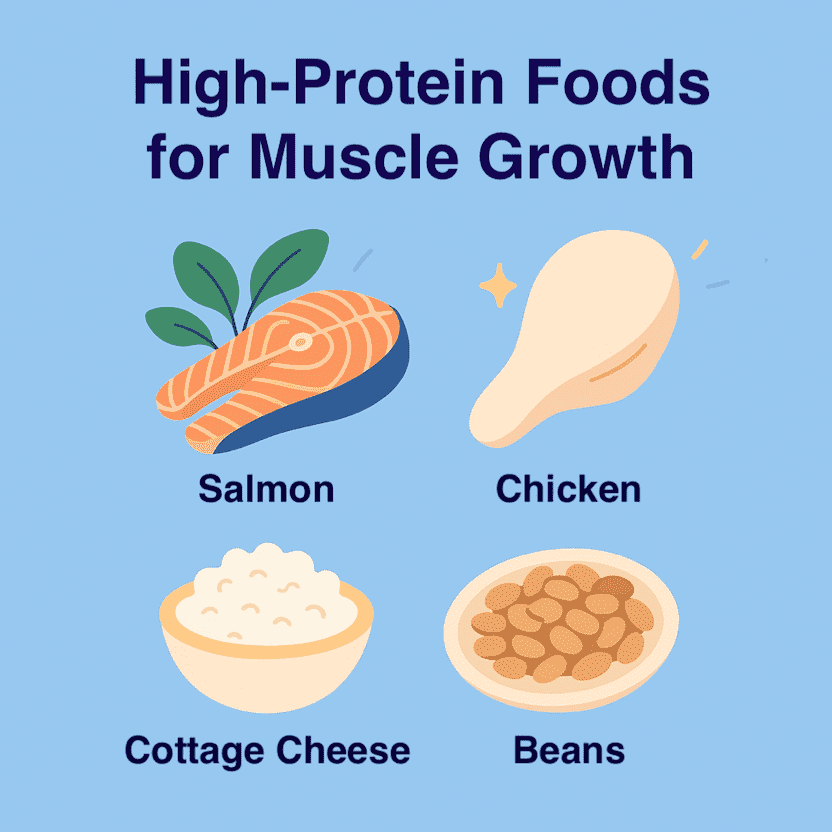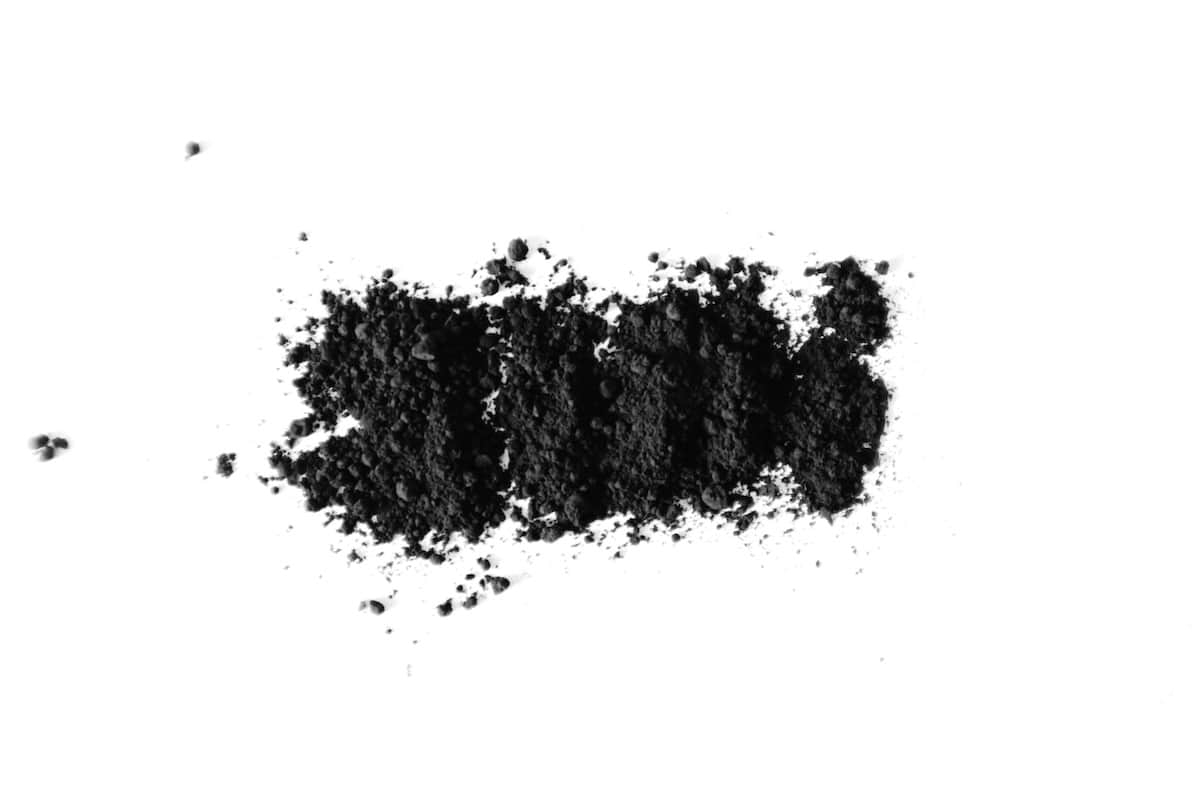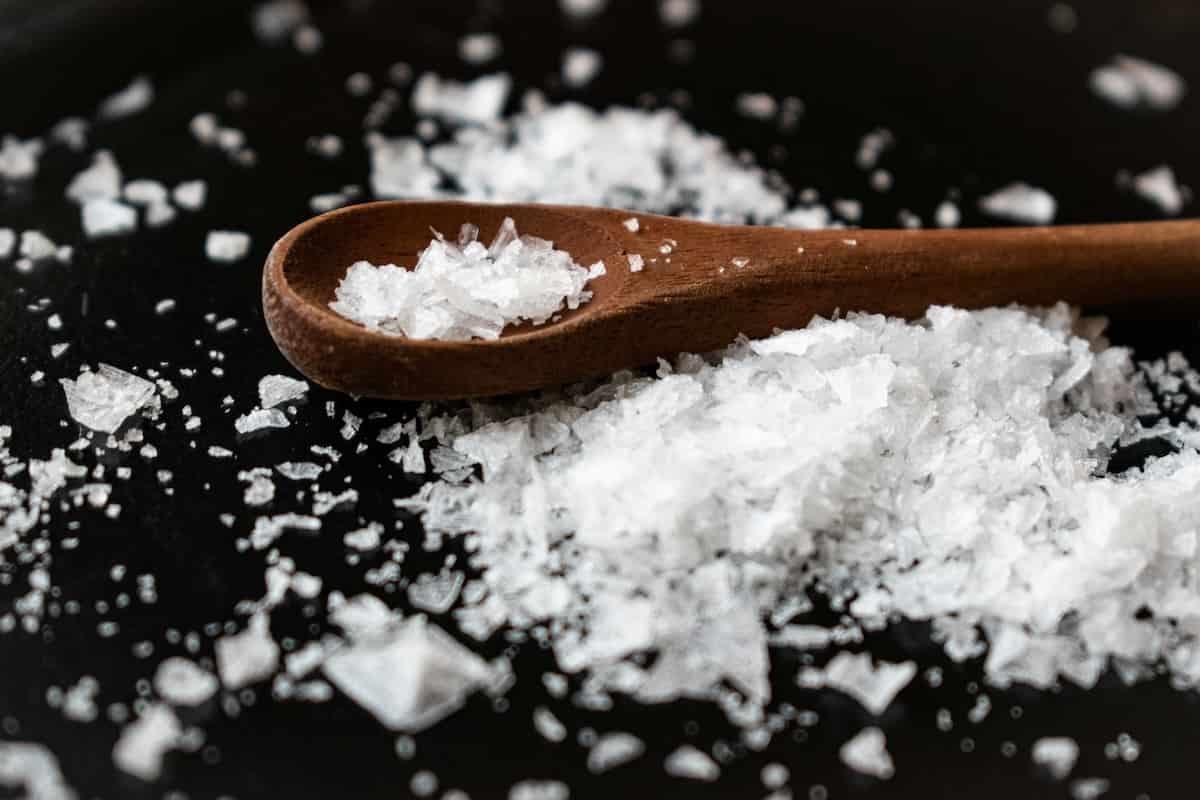Last update: November 6, 2025
4 minute read
What Are the Best High-Protein Foods for Muscle Growth?
Discover evidence-backed protein powerhouses, smart timing strategies, and nutritional know-how to build lean muscle—without sacrificing flavor or science.

By Derick Rodriguez, Associate Editor
Edited by Dr. Dimitar Marinov, MD, RDN, PhD

Ever wondered why your muscles aren’t growing, despite hours in the gym? It might not be your workout; it could be what’s missing from your plate. Protein is key in the muscle-building process: the essential building blocks that repair, strengthen, and fuel your progress.
But with endless advice flying around, what truly works, and what’s just hype? In this post, we explore the most research-backed, high-protein foods for muscle growth, explained simply, backed by science, and ready to slot into your routine. Let’s get you stronger, smarter, and more confident about what you eat.
Key takeaways
- As long as total protein intake is sufficient, gains are similar across high-quality sources
- Aim for 1.6–1.8 g/kg/day of protein for optimal muscle-building when combined with strength training
- Strategic protein intake, before/after workouts and before sleep, boosts muscle protein growth
Understanding high-protein foods for muscle growth
What makes a food “high-protein for muscle?” In simple terms, it’s a food rich in essential amino acids (like leucine), which your body needs to repair and grow muscle fibers.
Protein alone doesn’t build muscle; resistance training is the signal, protein is the recovery. Together, they create growth.

Science-backed benefits
Clinical evidence for protein intake
- A 2018 meta-analysis across 49 studies showed that increasing protein significantly improved muscle mass, though gains leveled off at higher intake levels.
- A systematic review found that protein supplementation supports resistance training-induced muscle mass and strength gains.
Quality over source, and plant power too
High-quality proteins (eggs, dairy, meat) often get top billing, but well-balanced plant-based meals (rice with beans, quinoa mixes) can be equally effective.
Recent controlled research found that vegan meal plans can match animal-based diets for muscle building.
Best high-protein foods
Protein Source | Protein (per serving) | Highlights |
|---|---|---|
Chicken Breast | ~26 g (3 oz) | Lean, high-density, super accessible |
Eggs | ~6–7 g each | Complete protein, widely usable |
Greek Yogurt | ~22 g (8 oz) | Casein & whey combo, great snack |
Salmon | ~22 g (3 oz) | Rich in omega-3s, anti-inflammatory |
Cottage Cheese | ~25 g (1 cup) | Leucine-rich, slow-digesting dairy protein |
Lentils / Tempeh | ~20-30 g per cup | Great for vegans, fiber-packed |
Quinoa | ~8 g per cup | Complete plant protein + fiber |
Seeds | 5–9 g per typical amt | Easy add-ons for protein boost |
Best practices for using high-protein foods
- Hit the total daily target: Aim for ~1.6–1.8 g/kg, if within the range of healthy body fat, adjust accordingly.
- Distribute intake: Spread protein evenly in 3-4 meals throughout the day.
- Focus on quality: Include complete proteins (animal or smartly combined plants).
- Combine with strength training: Protein alone isn’t enough; you need the stimulus.
- Customization matters: Consider your age, training status, and dietary preferences when picking sources.
— Dr. Dimitar Marinov, MD, RDN, PhDProtein is indeed central to muscle growth because it provides the essential amino acids your body needs to repair and strengthen fibers after resistance training. Evidence consistently shows that distributing protein evenly across meals, aiming for about 1.6–1.8 g per kilogram of body weight daily, and including a mix of high-quality sources—whether animal-based or well-planned plant-based—supports optimal gains.
Safety & side effects
- Excess protein doesn’t always equal more muscle.
- Kidney concerns? In healthy people, high-protein diets are generally safe; those with kidney issues should consult a doctor.
- Mercury alerts: Limit high-mercury fish like albacore tuna to once a week.
- Plant protein pitfalls: Some, like raw soy, contain protease inhibitors; cooking or choosing processed forms (tofu, soy milk) reduces this.
Frequently asked questions (FAQ)
Here are some of the most frequently asked questions about muscle growth.
Final thoughts
When it comes to building muscle, protein is your fuel—just make sure you're filling your tank wisely.
By choosing high-quality sources, whether animal or thoughtfully composed plant-based options, and timing them smartly around workouts and sleep, you give your body every advantage to grow stronger, leaner, and healthier.
You’ve got the research, the options, and the plan. Now, let’s make that plate work as hard as your workouts.
Sources and references
- A systematic review, meta-analysis and meta-regression of the effect of protein supplementation on resistance training-induced gains in muscle mass and strength in healthy adults - PubMed
- Protein supplementation augments the adaptive response of skeletal muscle to resistance-type exercise training: a meta-analysis - PubMed
- High-Protein Plant-Based Diet Versus a Protein-Matched Omnivorous Diet to Support Resistance Training Adaptations: A Comparison Between Habitual Vegans and Omnivores - PubMed
Editor

Derick Rodriguez
Derick Rodriguez focuses on editing health and wellness-related content. With over half a decade of experience in the digital realm, Derick has developed a unique skill set that bridges the gap between complex health concepts and accessible, user-friendly communication. His approach is deeply rooted in leveraging personal experiences and insights to illuminate the nuances of health and wellness topics, making them more approachable and empowering readers with knowledge and confidence.
Fact checker

Dr. Dimitar Marinov
Dr. Marinov has years of experience in scientific research and preventive and clinical medicine. His publications in peer-reviewed journals are on nutritional status, physical activity, and musculoskeletal disorders among adolescents.
At VitaRx, we're not just passionate about our work — we take immense pride in it. Our dedicated team of writers diligently follows strict editorial standards, ensuring that every piece of content we publish is accurate, current, and highly valuable. We don't just strive for quality; we aim for excellence.
Related posts
While you're at it, here are some other relevant articles you might be interested in.

Get your personalized vitamin recommendations in less than
5 minutes.
Get your personalized vitamin recommendations in less than
5 minutes.






